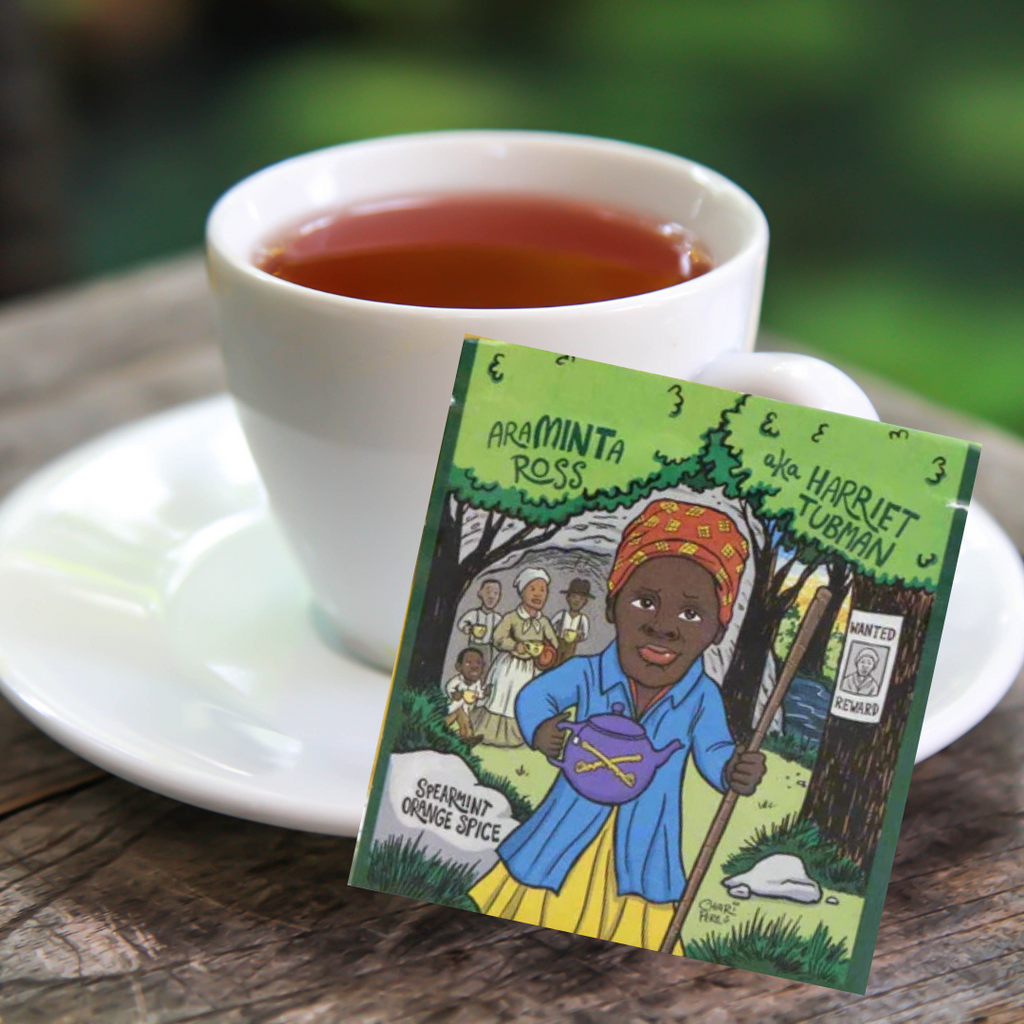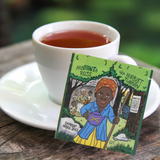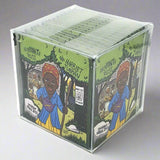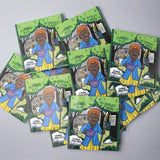



Harriet Tubman's Spearmint Orange Spice Tea
- Made in the U.S.A.
- 20 bags, 0.06 oz each
- Clear 3 x 3 x 3 inches 100% recycled plastic cube
- Ingredients:
- Dried honey
- Orange peel
- Spearmint
- Natural flavor
- Cinnamon
- Certified Organic, KSA Kosher, Non-GMO, Wheat Free, Vegetarian/Vegan
-
Harriet Tubman, born Araminta Ross, was truly a great American. Known mostly for her work on the Underground Railroad, she was also a scout, a spy, and a nurse for the Union. As the "Conductor" of "The Underground Railroad" she never lost a fugitive or allowed one to turn back. Indulge yourself in a cup of freshly brewed Spearmint Orange Spice Tea in her honor.
-
The destruction of tea in Boston in 1773 marked a critical turning point in the brewing American Revolution. The event is now known as the "Boston Tea Party". Boston was not the only city resisting British imperial policies that American colonists viewed as oppressive. Ports along the eastern seaboard blocked East India Company tea from landing, defying the 1773 Tea Act, which imposed no new tax but granted the company a colonial monopoly. Bostonians took extreme action in response.
On December 16, 1773, several dozen men crudely disguised as Mohawk Indians boarded three ships in Boston Harbor and dumped 342 chests of East India Company tea into the sea. The rebels primarily wore disguises to protect their identities and shield Boston from blame for destroying private property. They only succeeded in the former. Parliament’s punishment of Boston was swift and severe—leading the colonies one step closer to independence.
Some women and common men of all races, like George Pillsbury, participated in the American Revolution by organizing boycotts and protesting British policies and trade goods. In his 1830 account of Revolutionary War service, George Pillsbury detailed his rebellious activities, starting with his involvement in the Stamp Act protests of 1765. He described being present at the Boston Massacre, where "Christopher Mattocks [Crispus Attucks, a sailor of mixed African and Indigenous ancestry] was killed," and noted that he actively "aided in the destruction of the Tea. George Pillsbury's Revolutionary War Service Affidavit dated March 3, 1830, and many other documents related to the Boston Tea Party and the Revolutionary War can be found in the National Archives holdings.